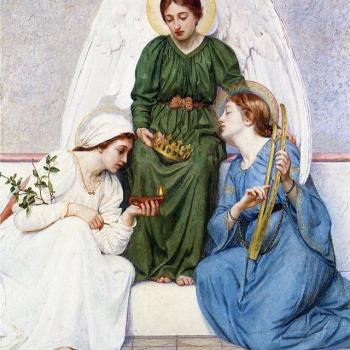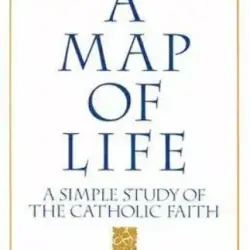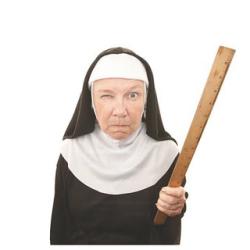Something Catholics tend to do quite frequently in online discourse is read a headline of an article and not the article itself.
They then make a judgement, reach a verdict and pronounce a sentence and then proceed to carry it out. These internet warriors think their the Catholic Judge Dredd.
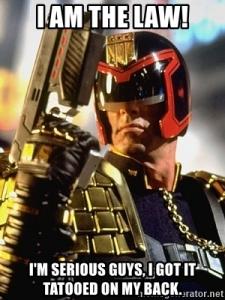
This was recently done to Fr. Casey Cole which you can read about In Defence of Father Casey Cole.
So I ask readers to actually read all the way through so we don’t end up with comments like..
Again pathetic patheos fools.
Calling BS on the sanctimonious hypocrisy of this author’s pathetic pontification.
This is one of the many leftist modernists who write for this website. Not to be trusted.
There is a good overall point in this post, so keep reading and find out why Joe Biden is NOT A HERETIC.
The article rewards close reading. It is not a defense, but a call for understanding precise terms used by the Church.
One of the joys of the internet and especially Facebook, is that one comes across compelling statements said by other people about issues that you only wish you could find the words to express the very same idea or sentiment. One person for me (and lots of other people) is Deacon Steven D. Greydanus.
Deacon Steve is mostly known for his insightful movie reviews given from a Catholic perspective at Decent Films – SDG Reviews.
He recently just put out SDG’s top films, 2000 – 2020
In 2020, after two decades of writing regularly about movies, I took a semi-sabbatical (coinciding, of course, with the coronavirus pandemic and the shuttering of movie theaters) and focused on other things.
While I saw a lot of films last year (and voted in a number of year-end awards) — and I hope to see, and review, more films this year — I’m still somewhat focused on other things, and I haven’t yet decided when, or whether, to do my traditional year-end best-of list.
Instead, for now at least, I find myself looking back on my two decades of film writing and thinking about the films and the filmmakers that have come to mean the most to me over the last 21 years.
Not necessarily the “best,” most impressive, or most important films, or even necessarily the ones I recommend most strongly to others. The films that have most stayed with me in some particular way — that have haunted, challenged and changed me, or simply beckoned me irresistibly to revisit them time and again. The films that have in some way become a part of me, of my imaginative DNA.
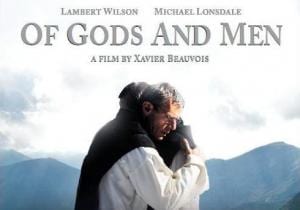
Being a deacon he also has great thoughts about Catholic spirituality and theology which you can find at The National Catholic Register.
Joy depends on love, on knowing that we are loved beyond imagining and comprehension, that the Creator of the universe loves each one of us, that it is good in his eyes that you exist.
None of this means that we shouldn’t take joy in the pleasures of life: in being warm, comfortable, well fed, happy, and loved. Whenever and wherever we can find them, these pleasures are gifts from God, and we’re meant to enjoy them. We should seek them. We should pray for them.
But the source of true joy is not any of God’s gifts, but God himself, and that’s a lesson that we true learn not when things are easy, but when they’re hard — when we take up the crosses that fall to us and follow Jesus, making his words the prayer of our heart: “Thy will be done.”

On charges of heresy, dissent, cafeteria Catholicism, apostasy, etc.:Be careful with your words.
Be particularly careful with words of criticism, accusation or condemnation, especially when talking about matters of faith.For Catholics, many things are defined in our faith, but many more are not. One reason the faith develops over time is that new generations ask new questions and face new situations calling for new answers and new solutions. In our ever-changing world there are wide-open areas where Catholics may permissibly explore different approaches to many unanswered questions about the implications of our faith in the world today.Saying something you disagree with does not make one wrong.Even being wrong doesn’t make one a dissenter or a cafeteria Catholic.Even being a dissenter doesn’t make one a heretic.Even being a heretic doesn’t make one an apostate.
Don’t call someone a cafeteria Catholic just because you consider their approach unhelpful, misguided or even wrong. Don’t call someone a heretic because they don’t accept everything that Catholics ought to accept. Don’t call someone an apostate because they fail to confess everything that we must believe with divine and Catholic faith.June 14, 2017 Facebook
Which now brings us the main point of the article.
Is Joe Biden a Heretic?
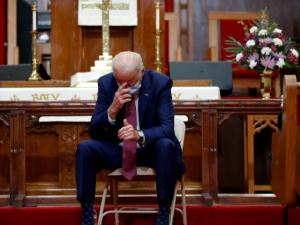
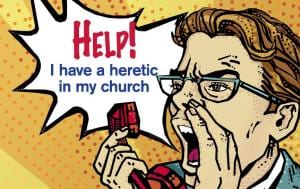
(It) is the mistaken idea that, upon excommunication, a “person is no longer a member of the Catholic Church.” Actually an excommunicated Catholic is still a Catholic in rather the same way that a convicted felon is still a citizen. An excommunicated Catholic is simply (sadly, but simply) a Catholic who is excommunicated.
Canon 205 recognizes as Catholic any baptized person who is joined with the Church “in its visible structure by the bonds of profession of faith, of the sacraments, and of ecclesiastical governance.”
First, Canon 916. There are lots of mortal sins out there; if you commit any one of them, you’re not supposed to go to Communion. It’s your obligation to stay away. Next, Canon 915. Some mortal sins are committed under circumstances that, if the Church finds out about them, not only are you supposed to the stay away from Communion, but the Church is supposed to turn you away if you try to receive. Finally, Canon 1331. A few mortal sins are serious crimes under canon law; if you commit one of those, you can suffer the penalty of excommunication, and one of the consequences of excommunication is, you can’t go to Communion.
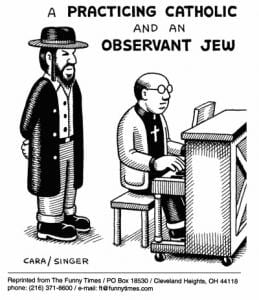
A person who has committed heresy, apostasy, or schism may no longer identify himself as a Catholic, but he’s still bound by the Church’s laws—including, for example, the obligation to attend Mass every Sunday (without receiving Holy Communion, of course).This brings to mind the old saying, “Once a Catholic, always a Catholic.” There’s a sense in which that’s true, since the legal obligations we acquire upon being baptized or received into the Church continue to exist even if we renounce the Faith and no longer regard ourselves as Catholic.
It is even more clear that someone who still professes to be Catholic—even unfaithfully—remains so, even if it is purely in a “bodily” way and not “in his heart.”
Jimmy Akin, Are Bad Catholics Still Catholics?January 30, 2019) Catholic Answers








